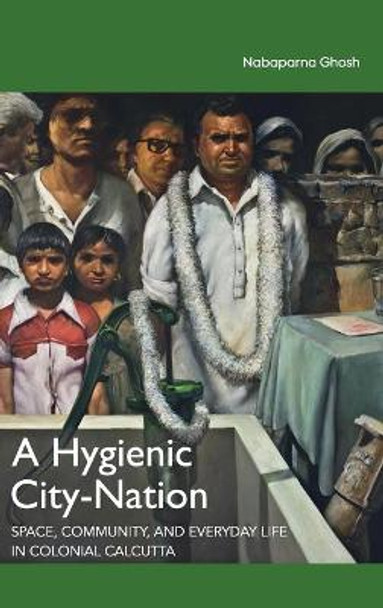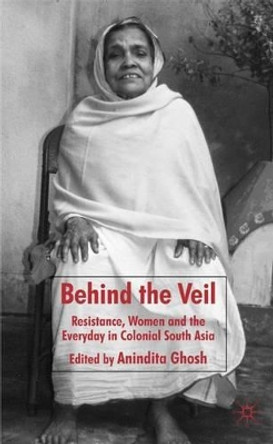Description
This book offers an on-the-ground view of colonial Calcutta's neighbourhoods, where kinship-like ties shaped urban space and resisted city-making efforts of the state.
About the Author
Nabaparna Ghosh is Assistant Professor of Global Studies at Babson College, USA. Her research focuses on the urban history of South Asia. She was awarded her Ph.D. in History from Princeton University.
Reviews
'Nabaparna Ghosh's A Hygienic City-Nation is an important and timely work, bringing the long historical project of Hindu nation formation down to the neighborhood level. Deeply researched and lucidly presented, it shows how a regime of upper caste Bengali spatial dominance determined the urbanization process in colonial Calcutta. The work is especially commendable for moving past accounts of colonial power as totalizing - as it shows, very modern logics drove Bengali upper caste Hindus to appropriate colonial discourses of sanitation and hygiene. Ultimately, colonial discourses of sanitation were domesticated into Calcutta's neighborhood setting for an anti-Dalit and anti-Muslim urban consolidation of local, regional, and national power.' Sheetal Chhabria, Connecticut College
'Nabaparna Ghosh's important new work is a critical study of how the Hindu elite in Calcutta responded to and qualified urban regulation by the colonial state, generating an alternative Hindu spatial and hygienic order, politicizing informal spaces like the para (neighbourhood). A fascinating and engaging account, this book extends the frontiers of urban and Calcutta studies in many significant ways.' Partho Datta, Jawaharlal Nehru University
'An account that weaves an extraordinary tale out of the ordinary - a dense narrative of privies, contests over land, neighbourhood clubs and community festivals - painstakingly culled from reports, law suits, photographs, memoirs and a deep understanding of the communities inhabiting Calcutta in the late 19th and early 20th centuries. This is a conscious departure from the conventional reading of the archive that offers new perspectives on the colonial city, by shifting the focus onto its residents. By showing the intimate connection between health and sanitation and the articulation of citizenship, Ghosh enters the intense debate between the colonial imperative to introduce uniform civic regulations on the one hand and the dictates of custom and tradition for the residents on the other. The study also offers a history from below of nation-building in the everyday spaces of paras or neighbourhoods. The emerging discourses of health and hygiene within middle class neighbourhoods, Ghosh argues, inscribed competing claims on citizenship and leadership for Bengalis. Hygiene, as she shows, made for hierarchies - moral, material and social - not only between the colonials and colonised, but also within indigenous society. This is a new way of looking at the city, beyond town plans, built environment, maps and statistics. It places the lived experiences of the city's residents at the heart of urbanity, defining both its possibilities and its limits.' Anindita Ghosh, University of Manchester
'This fascinating study makes an important contribution to the historiography of urban South Asia. Through a careful reading of a range of sources, Nabaparna Ghosh shows how Indians shaped urban spaces and practices in colonial Calcutta. In the process, her book offers illuminating insights into the making of India's urban modernity.' Prashant Kidambi, University of Leicester
'Nabaparna Ghosh's A Hygienic City-Nation is a critical addition to the literature on cities under colonialism. This fascinating book complicates ideas about the control of the British Empire over urban space and shows that city dwellers carved out autonomous spaces in Calcutta at the neighborhood level of the para. Along the way, Ghosh demonstrates how the social group of the bhadralok began to promote specific practices of hygiene in these neighborhoods. The author illustrates how bhadralok practices came to underpin ideas of a Bengali Hindu nation and presents the city as a key site of an emerging nationalism in South Asia. In this way, A Hygienic City-Nation offers an urban history with implications far beyond the individual case of Calcutta. Ghosh's illuminating study will resonate with historians of cities and nationalism around the world.' Joseph Ben Prestel, author of Emotional Cities: Debates on Urban Change in Berlin and Cairo, 1860-1910
'A groundbreaking study of colonial Calcutta from the perspective of its Indian neighborhoods and everyday life. Ghosh delivers skillful analysis of the gritty spaces of urban modernity and resistance, and explores the colonial spatialization of hygiene and race with fresh insight. Well written and engaging, the book is a must read for scholars of South Asian cities and global urban history in general.' Rosemary Wakeman, Fordham University
Book Information
ISBN 9781108489898
Author Nabaparna Ghosh
Format Hardback
Page Count 236
Imprint Cambridge University Press
Publisher Cambridge University Press
Weight(grams) 440g
Dimensions(mm) 237mm * 157mm * 20mm






